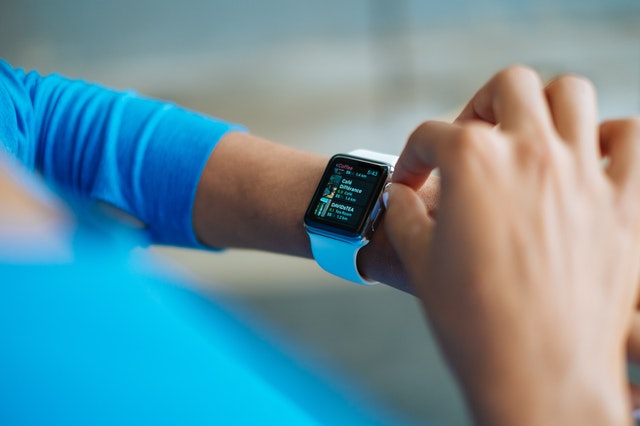Today, tracking your health data is a major wellness trend. Perhaps you have a FitBit, and you like to ensure that you hit 10,000 steps every single day. Maybe your smartwatch helps you log your workouts and monitors your heart rate. You might have an app to track your fertility and predict your menstrual cycle and PMS symptoms. If you meditate and do yoga, you might log all of your sessions into a mindfulness app. And you can even track some important health metrics in your sleep—for example, you can download apps for your smartphone that will let you know if you have a healthy sleep cycle or not.
Today, one in four Americans use some kind of fitness tracking device. With all of the health tracking tools available to the average consumer today, you can literally track your every breath. The idea is that by keeping track of all of this data, you will know whether you’re living a healthy lifestyle, where you’re falling short, and what changes you need to make. Plus, having your health data on hand could be helpful if you’re dealing with a mysterious issue and your doctor is trying to figure out a diagnosis. But does collecting all of this data really help us become healthier versions of ourselves in the long run? Or does it simply make us feel more anxious about achieving perfection?

Apple watch starts at $399 and requires a phone plan just like your, well, phone.
There are times when tracking certain habits and metrics are important if you want to achieve a goal. For example, if you recently went vegan and want to ensure that you’re getting all the vitamins and minerals you need, you might use a nutrition tracker and enter your meals so that you can rest assured that you’re not missing out on anything. If you’re training for an important race, there’s a good chance that you’ll want to carefully log your workouts so that you can note your progress.
But what if you’re not using that data to track your progress towards a particular goal, or because you have an actual medical condition that you need to monitor? It seems like in some cases, tracking your health data can actually do more harm than good.
If you are prone to anxiety, obsessing over fluctuations in your health data can affect your mental health. There is very little peer-reviewed research available on the ways that health tracking can fuel anxiety and hypochondria, but early studies do point to a connection. For instance, neuroscientists at Northwestern University published several case studies about a phenomenon they refer to as “orthosomnia,” or the “desire for perfect sleep.” They found that people who were using sleep tracking apps and devices were showing up to sleep clinics when they perceived flaws in their sleep cycles based on their data. But when doctors ran tests, they found these patients were perfectly healthy and had normal sleep cycles. Despite this, their anxiety over their sleep cycles persisted—good test results and positive feedback from professionals did not soothe their worries.
Furthermore, constantly tracking your health data can take the joy out of eating a delicious, nutritious meal, going out to eat with your loved ones, or working out and improving at a sport you love. You can’t simply sit back and appreciate the moment for what it is, or celebrate everything your body is capable of. Instead, every bite becomes a new data point. Every footstep becomes a number in a spreadsheet, a figure to be crunched and analyzed.

Finally, the biggest question—does tracking all of this data actually help us to improve our health? In some scenarios, it certainly could. However, it’s worth noting that the healthiest populations in the entire world do not make any effort to track their health data. People living in the “Blue Zones” live longer, healthier lives than anyone else—and you won’t catch most of them wearing fit bits or sleeping with a smartwatch on. They simply practice healthy habits, day in and day out, and spend plenty of time with their loved ones.
At the end of the day, your job is not to perfectly “manage” your body. Your heart beats on its own. You breathe and blink without thinking twice about it. You don’t need to keep track of every little thing that your body does—chances are, it’s working just fine on its own. Yes, fitness trackers definitely have their uses, but do we really need to be wearing them on a daily basis? If you find that tracking your health data is overwhelming, maybe it’s time to toss those trackers.
__
Photo: Pexels




